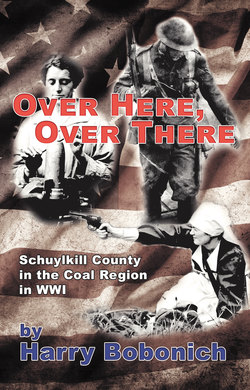Читать книгу Over Here and Over There - Harry Bobonich - Страница 14
На сайте Литреса книга снята с продажи.
A Christmas Truce
ОглавлениеIt was a clear cold morning and the ground was all covered with frost on December 24, 1914 on the Western Front. It was Christmas Eve and that night there was a full bright moon overhead—it was rather quiet and then a strange thing happened. Most accounts say that after a lull in the fighting, soldiers began singing Christmas carols.
According to Naina Bajekal, rifleman Graham Williams of the Fifth London Brigade recalled that night in the following manner:
First the Germans would sing one of their carols and then we would sing one of ours, until when we started ‘O Come, All Ye Faithful’ the Germans immediately joined in singing the same hymn to the Latin words Adeste Fideles. And I thought, well, this is really a most extraordinary thing—two nations both singing the same carol in the middle of a war.
The following day, some German soldiers left their trenches and called out “Merry Christmas” in English. Then, Allied soldiers came out cautiously to meet them. Other German soldiers held up small signs with friendly messages. Throughout the day, they exchanged cigarettes, food and others items and also allowed both sides to bury their dead. There were even some stories that soldiers were kicking a made-up soccer ball about.
Naina Bajekal stated that approximately 100,000 troops are believed to have taken part in the romanticized truce. It wasn’t a peace, but the “eerie silence” could be felt all along the front.
Fighting, however, resumed later that day in some areas but the truce lasted for several more days in other sectors. There were several incidental moments of peace during the rest of the war, but there was never a truce like the unexpected and astonishing Christmas truce of 1914.
Bajekal wrote:
Still, a century later, the truce has been remembered as a testament to the power of hope and humanity in a truly dark hour of history . . . And though the Christmas Truce may have been a one-off in the conflict, the fact that it remains so widely commemorated speaks to the fact that at its heart it symbolizes a very human desire for peace, no matter how fleeting. (Bajekal 2014)
